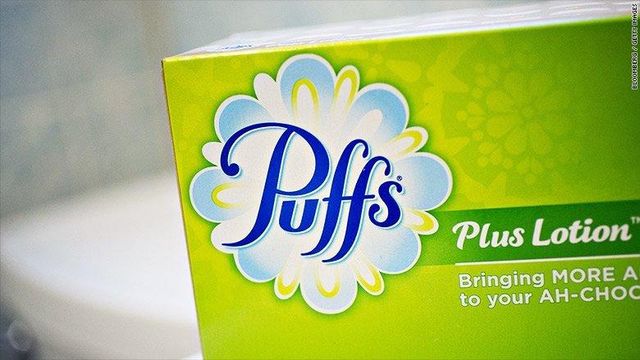Coronavirus shopping list: The medicines, supplies you need on hand in case your kids get sick
Five more cases of COVID-19, the illness caused by the novel coronavirus that's spreading around the world, popped up in Wake County this week. Trinity Academy, a private school in Raleigh, closed Tuesday after a parent tested positive. Also on Tuesday, Wake County Public School System canceled field trips and other travel, including this week's popular First in Fitness competition.
The goal is to slow down the spread of the virus, which has shut down the entire country of Italy and a community in New York state, so far. Even still, by next year, according to the Centers for Disease Control and Prevention, many people in the United States likely will have been exposed to it.
"There's a good chance that many will become sick," said Nancy Messonnier, director of the National Center for Immunization and Respiratory Diseases, in a telebriefing on Monday, March 9. But, she added, based on what researchers know about the illness, "we do not expect most people to develop serious illness."
While older adults, age 60 and up, and those with underlying health issues, especially lung diseases, are at high risk for complications, children who are healthy are not.
"It still affects kids, but what has been a blessing is that the illness does not seem to be terribly severe in children," said Dr. Bobby Park, a WakeMed emergency medicine physician who also staffs WakeMed's virtual urgent care online service, in an interview.
For kids who catch the coronavirus, most experience a mild upper respiratory infection — in other words, a cold.
"Which is great," Park said. "On the other end of the spectrum for the elderly, it results in severe illness, pneumonia, respiratory distress and is landing patients in the ICU."
And that's why government officials and health experts are suggesting caution at the moment. On Tuesday, state health officials recommended that those age 65 and up or with underlying health conditions avoid large gatherings.
For parents of otherwise healthy children, however, it makes sense to keep those hands washed and to stock up on the supplies you'll need to help your kids get better if they get sick.
"I think it's reasonable to stock up on medical supplies as this ramps up," Park said. Stocking up now means you won't have to go out if you or your child gets sick and potentially spread the virus to others.
So what should parents have on hand to ease any symptoms their kids may have? The usual items you'd use if your child was suffering from a cold with cough, fever and congestion.
Cough and Cold Medicine
Park isn't a big believer in the effectiveness of cough medicine, but if you feel like it works for your family, he won't dissuade you from using it. He does note, however, that the American Academy of Pediatrics does not recommend it for kids 4 and under. According to the academy, research has shown that they offer few benefits and can have some serious side effects.
"I don't recommend them until kids are over the age of 4," he said. "But I honestly don't recommend them for my patients."
Park said parents also should be cautious about using any medications that include ibuprofen or acetaminophen if you're already giving your child those pain relievers separately to ensure you don't give your child too much.
Pain Killers
Ibuprofen, found in Advil and Motrin, and acetaminophen, found in Tylenol, can be effective ways to reduce fever and aches and pains. Ibuprofen, however, should only be used in kids over the age of 6 months, Park said.
To help control fever, Park recommends staggering doses of ibuprofen and acetaminophen. He recommends starting with a dose of ibuprofen, followed by a dose of acetaminophen three or four hours later, followed by a dose of ibuprofen in another three or four hours and so on. Children can take each medication every six to eight hours.
"By staggering like that, the fever will not creep back," he said. "As one is wearing off, the other one is still strong. ... That's what I personally do with my own kids."
To make it easy, Park said he sets the timer on his smartphone to signal when it's time for the next dose.
Sniffles Care
My family members are big users of saline nose drops when we get a cold, which Park endorses to help stuffed noses and congestion. For younger children, saline mist, nasal aspirators and humidifiers can help make cold symptoms more bearable.
Hydration
Water works well, but Park recommends getting any kind of beverage that your child will drink. Staying hydrated is critical for recovery.
"Any fluids that a kid can get down is OK as long as it's not caffeinated," he said. "That goes for Popsicles and things that kids love. Whatever you can get into kids when they're sick is a good thing."
Comfort Foods
If there are favorite foods you know your kids will eat when they're sick, it's a good idea to have them, Park said. "Chicken soup, saltines — all the standard stuff that you would use to treat for a cold to try and feel better and encourage hydration."
Symptoms can last up to 14 days, Park said. And while most kids will feel like they have a bad cold, some will need more help. A child with COVID-19 should get medical attention if they have difficulty breathing, are experiencing persistent vomiting, have changed their behavior or are limp or listless, Park said. "Those are all red flags symptoms to get evaluated in person," he said.
Through March 31, WakeMed Virtual Urgent Care is available for $15 (50% off its regular rate) with coupon code CARENOW. The services allows patients to see doctors virtually, so they can be evaluated without exposing others to a potential illness. All N.C. residents can be seen online 24/7 using a smartphone, tablet or computer. More information is on WakeMed's website.













